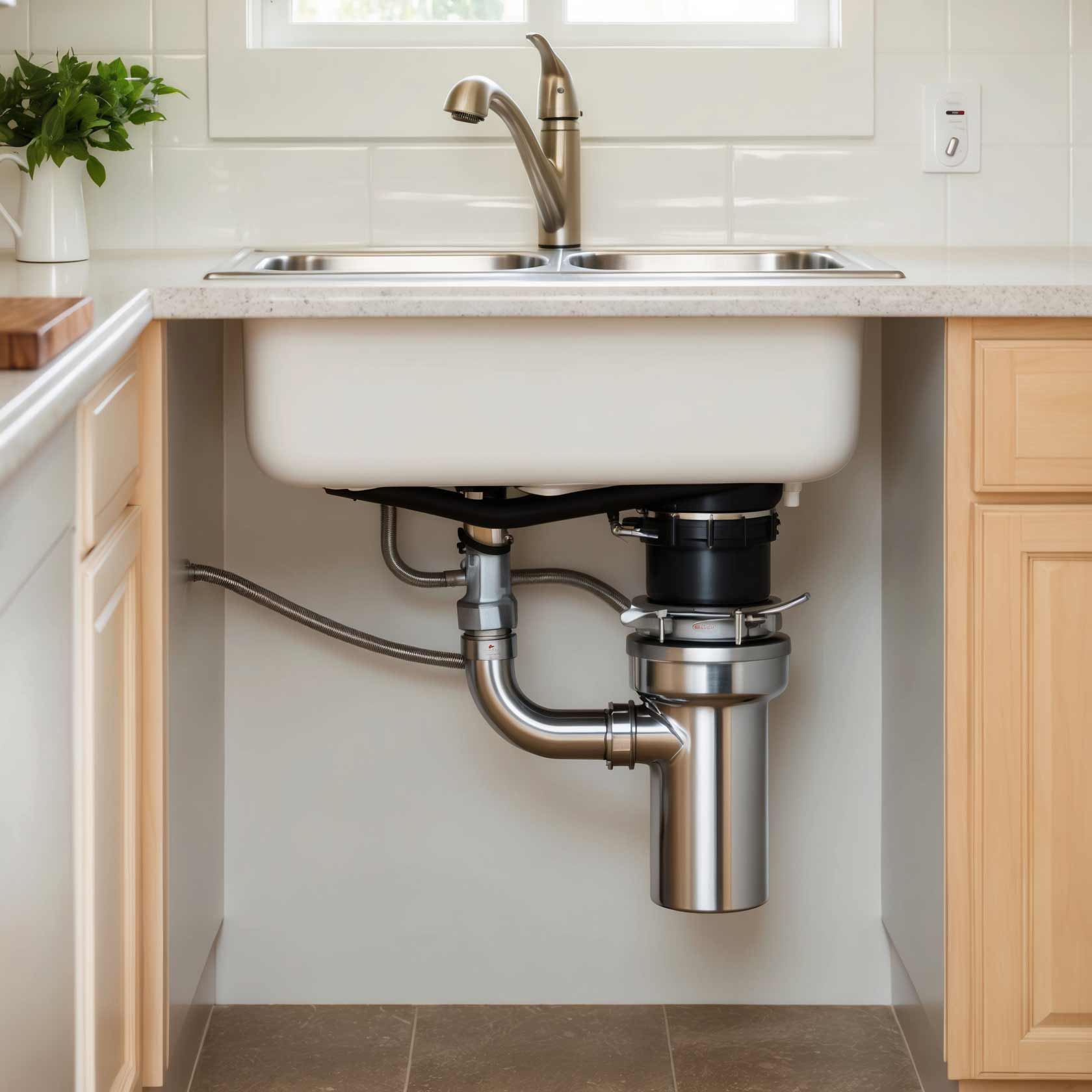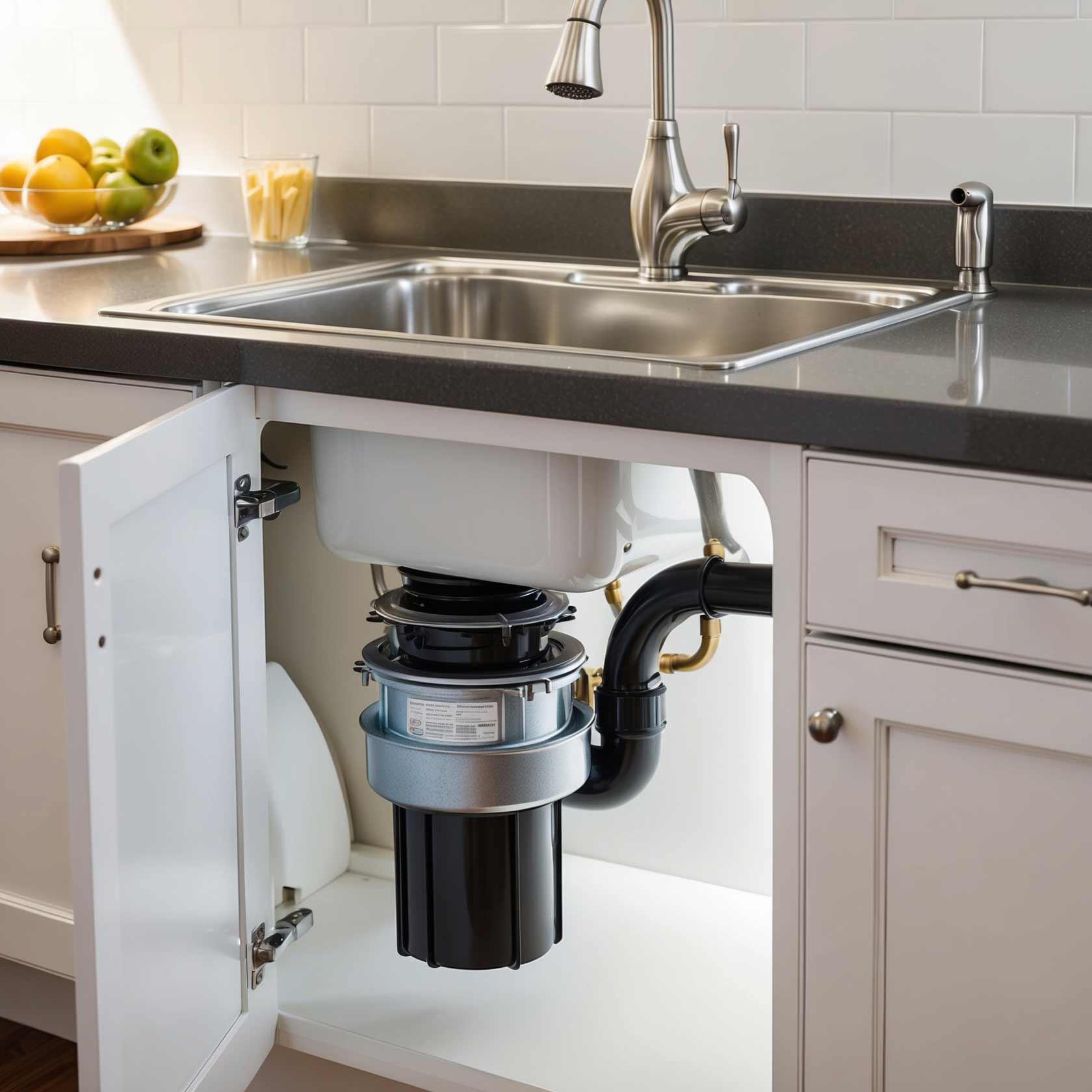What Is The Downside To A Garbage Disposal?
Introduction
Garbage disposals are a commonplace feature in many modern kitchens. They offer an easy and convenient way to dispose of food waste, reducing clutter and making kitchen cleanup a breeze. However, like any appliance, garbage disposals come with their own set of potential downsides. In this article, we will delve into the various drawbacks associated with garbage disposals, highlighting important considerations for homeowners.
What Is The Downside To A Garbage Disposal?
While garbage disposals can be incredibly useful, they aren't without their pitfalls. So, what is the downside to a garbage disposal? Here are some of the most common issues that arise when using these appliances:
Clogging Issues: One major downside is that garbage disposals can easily become clogged if not used properly. Certain foods, such as fibrous vegetables or starchy items like pasta and rice, can lead to blockages in your plumbing system.
Potential for Odors: Without regular maintenance and proper cleaning, garbage disposals may emit unpleasant odors over time. Food particles can get trapped inside the unit, leading to bacterial growth and foul smells.
Environmental Impact: Disposing of food waste through a garbage disposal might seem eco-friendly at first glance; however, it can actually strain local wastewater treatment facilities and contribute to water pollution.

Noise Levels: Many users find that garbage disposals can be quite loud during operation, which may be bothersome in a household setting.
Energy Consumption: Although generally minimal, garbage disposals do consume energy when in use, leading to slight increases in electricity costs.
Limited Waste Types: Not all food waste is suitable for disposal down the drain; certain items (like bones or coffee grounds) should never be put into a garbage disposal.
By understanding these downsides, homeowners can make informed decisions about whether or not to install or continue using a garbage disposal in their kitchen.
Common Misconceptions About Garbage Disposals
Misconception 1: All Food Waste Is Safe for Disposal
Many people believe that they can throw any type of food waste down their garbage disposal without repercussions. In reality, there are certain types of waste that should always be avoided to prevent clogs and damage.
Misconception 2: Garbage Disposals Eliminate Waste Completely
While garbage disposals grind food waste into small particles, they don’t actually eliminate it completely; instead, they send it down your plumbing system where it still requires processing by wastewater treatment plants.
Misconception 3: Maintenance Isn’t Necessary
Some homeowners think that once their garbage disposal is installed, it requires no further care. In fact, regular cleaning and maintenance are essential for optimal performance and odor prevention.
How Does a Garbage Disposal Work?
Understanding how your garbage disposal operates can help you appreciate its advantages while also being aware of potential issues it may cause.
Grinding Mechanism: When you turn on your disposal unit after feeding in food waste, it activates its grinding mechanism—usually made up of sharp blades or impellers—that pulverizes the waste into tiny bits.
Water Flow: It's crucial to run cold water during operation because the water helps flush out the ground particles through your plumbing system.
Discharge Process: Once ground up sufficiently, the food particles are sent through pipes leading to either your municipal sewage system or septic tank where further processing occurs.
The Environmental Impact of Garbage Disposals
Wastewater Treatment Concerns
One significant environmental concern surrounding garbage disposals is their contribution to increased organic load in wastewater treatment systems:

- Municipal facilities often struggle with high levels of organic material from homes equipped with disposals.
- The breakdown process may require additional resources and energy expenditure.
Landfill vs. Sewer Systems
You might wonder whether it's better to use a garbage disposal versus composting:
- Composting allows organic matter to decompose naturally without overwhelming sewer systems.
- Conversely, improper usage of disposals leads to more solid waste entering landfills if not managed correctly at treatment plants.
Maintenance Tips for Your Garbage Disposal
To ensure your unit operates effectively while minimizing negatives:
- Use ice cubes combined with rock salt or vinegar periodically.
- Citrus peels can also refresh odors while ensuring cleanliness.
- Always run plenty of cold water during operation.
- Avoid fibrous vegetables (like celery) and hard items (such as bones).
- Check for leaks annually.
- Inspect connections and seals around the unit regularly.
Alternative Solutions for Food Waste Management
If you're reconsidering the use of a garbage disposal due to its downsides:
Composting as an Option
Composting offers sustainable alternatives by allowing organic materials like vegetable peels and fruit scraps to decompose naturally:
- It enriches soil quality while reducing landfill contributions.
- Various methods range from simple backyard setups to advanced electronic composters.
Municipal Organic Waste Programs
Many cities now have programs specifically designed for collecting organic waste—making composting easier than ever!
FAQs
1. Can I put coffee grounds down my garbage disposal?
No! Coffee grounds can accumulate and create sludge over time causing clogs.
2. How do I eliminate odors from my disposal?
Try running ice cubes mixed with lemon peels or baking soda followed by hot water once a week!
3. What happens if I put something harmful down my disposal?
It could cause jams or even damage internal components requiring costly repairs or replacements!
4. Are there specific foods I should avoid putting down my disposal?
Yes! Avoid fibrous veggies like celery & hard foods such as bones that Tip Top Plumbing & Restoration can damage blades!
5. Can using a disposal impact my septic system negatively?
Improper usage could overwhelm septic systems leading them needing more frequent pumping & maintenance!
6. Do all kitchens need a garbage disposal?
Not necessarily! Consider space limitations & personal preferences regarding waste management options before deciding!
Conclusion
In summary, understanding "What Is The Downside To A Garbage Disposal?" equips homeowners with valuable insights necessary for making informed decisions about kitchen appliances designed for food waste management needs! While these units offer convenience—clogging issues alongside potential environmental impacts make thoughtful consideration important when integrating them into our homes! By balancing efficiency against sustainability through proactive maintenance practices—or exploring alternative solutions—we ensure cleaner living spaces while benefiting our environment too!